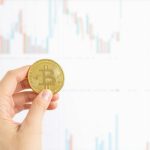Navigating the Glittering Maze: Why Choosing the Right Gold Dealer Matters
When venturing into the world of physical gold investments, the allure of tangible assets is undeniable. However, the journey to secure authentic, high-quality gold starts with identifying trustworthy dealers. The gold market’s complexity, amplified by counterfeit risks and fluctuating prices, demands a discerning eye and expert knowledge to ensure safe acquisitions. This article unpacks the critical criteria and nuanced tactics essential to find reliable gold dealers, empowering investors with confidence and security.
Decoding Dealer Credibility: Beyond the Surface of Certifications and Reviews
While certifications from recognized bodies such as the London Bullion Market Association (LBMA) appear reassuring, they are just initial indicators. Authenticity verification extends to examining a dealer’s history in the market, transparency in pricing, and adherence to ethical sourcing. For instance, dealers who openly provide assay certificates and detailed provenance of their gold bars or coins demonstrate a commitment to trustworthiness that transcends basic compliance.
What Are the Key Red Flags When Vetting Gold Dealers?
Spotting potential pitfalls involves vigilance over unusually low prices, opaque return policies, and reluctance to disclose product details. A reliable dealer will offer clarity on the karat purity, weight, and hallmarking of physical gold. Additionally, secure transaction processes and clear communication channels serve as vital trust markers. Investors should avoid dealers lacking verifiable contact information or those who pressure for immediate purchases without due diligence.
Leveraging Technology and Community Insight: Modern Tools to Identify Trusted Sellers
In today’s digital age, leveraging online platforms for dealer validation is indispensable. Trusted online marketplaces often feature user feedback and expert reviews that highlight consistent quality and service. Additionally, blockchain technologies are increasingly employed to track gold provenance, assuring buyers of genuine origin. Engaging with investor forums and consulting resources like specialized guides on identifying reputable gold dealers can significantly enhance your decision-making process.
Insider Tips: Negotiating and Securing the Best Physical Gold Deals Safely
Negotiation is an art often overlooked by newcomers. Experienced investors know that dealers may offer better premiums or discounts based on purchase volume and market conditions. Always request a detailed invoice and confirm the authenticity through independent assay tests post-purchase. Secure storage advice is equally crucial; a reputable dealer will provide or recommend insured vault options, minimizing risks after acquisition.
If you found these expert insights helpful, feel free to share your experiences or questions in the comments below—engaging with a knowledgeable community can sharpen your investment acumen.
For an authoritative perspective on gold market dynamics and trusted dealer practices, the London Bullion Market Association remains a pivotal resource, offering standards and updates essential for serious investors.
Why Personal Experience Matters in Choosing Gold Dealers
Reflecting on my first physical gold purchase, I remember the anxiety of choosing a dealer I could trust. It wasn’t just about the price but the peace of mind that the gold was authentic and ethically sourced. Over time, I found that building relationships with dealers who prioritize transparency and customer education made all the difference. Some offered detailed assay certificates and even invited me to inspect the gold personally before finalizing the purchase, which boosted my confidence immensely.
How Do Market Dynamics Affect Dealer Reliability?
The gold market is constantly influenced by economic shifts, geopolitical tensions, and demand fluctuations. Understanding these dynamics helps in assessing whether a dealer’s pricing is reasonable or too good to be true. For example, during periods of increased central bank gold purchases, legitimate dealers may face supply constraints that reflect in slightly higher premiums. Conversely, dealers offering steep discounts might be cutting corners or selling questionable products. This perspective came from following market insights from sources like the Buying Old Now article on central bank gold purchases, which helped me better interpret price movements and dealer behavior.
Curious About How to Safely Store Your Physical Gold After Purchase?
Storing physical gold is a crucial part of the investment journey that often gets overlooked. After my first purchase, I realized that even the most trusted dealer couldn’t protect my investment once it left their hands. That’s why I explored various storage options, from home safes to third-party vaults. Insured vault storage, recommended by reputable dealers, offers an excellent balance of security and convenience. It also adds an extra layer of verification that the gold remains untouched and authentic over time.

Community Wisdom: Learning from Fellow Investors
Engaging with fellow gold investors in online forums and local investment groups has been invaluable. They share firsthand experiences with dealers, including red flags to watch for and trusted contacts. This communal knowledge base complements the formal certifications and reviews, providing a richer picture of dealer reliability. If you’re venturing into physical gold investments, I highly recommend tapping into these communities – they’re often the first to spot emerging scams or market shifts.
Have you had any experiences with gold dealers that taught you valuable lessons? Share your stories or questions below – your insights might help someone else navigate this glittering maze more confidently!
The Geopolitical Goldmine: How Global Events Shape Dealer Trustworthiness
Understanding the geopolitical landscape is not just for economists; it’s crucial for gold investors seeking reliable dealers. Political instability, currency fluctuations, and trade tensions profoundly influence gold supply chains and dealer reliability. For instance, sanctions on countries with significant gold mining operations can disrupt supply, causing scarcity that dealers must transparently communicate. Dealers who proactively update clients on how such events impact availability and pricing demonstrate a higher level of professionalism and market insight.
Moreover, dealers connected to stable jurisdictions with robust anti-money laundering (AML) policies tend to offer safer transactions. Compliance with international standards such as the OECD Anti-Bribery Convention signals ethical sourcing practices, which not only protect investors but also preserve the integrity of the gold market.
Demystifying the Premium Puzzle: What Influences Gold Dealer Pricing Models?
Premiums over spot price can vary widely among dealers, influenced by factors beyond mere markup. These include refining costs, assay certification fees, minting quality, and logistical expenses. For example, limited edition or collectible coins command naturally higher premiums due to rarity and demand. Experienced investors discern these nuances, differentiating legitimate premiums from suspiciously inflated prices.
Transparent dealers often break down these costs in their invoices, offering insight into pricing structures. This transparency aids in comparing offers and negotiating better deals. It’s also wise to watch for hidden fees like shipping insurance or storage setup charges that can inflate costs unexpectedly.
How Can Investors Verify the Authenticity of Gold Without Advanced Equipment?
While professional assay tests provide definitive verification, there are accessible preliminary methods investors can use. Magnet tests identify counterfeit gold since genuine gold is non-magnetic. Density tests, though rudimentary, can indicate discrepancies in weight versus volume. Dealers who allow for such preliminary checks before purchase or provide guarantees for authenticity build investor confidence.
Furthermore, technological advances have introduced mobile apps that analyze gold purity through spectroscopy, albeit with limitations. However, these tools supplement rather than replace professional verification, especially for high-value acquisitions.
Harnessing Blockchain for Provenance: The Future of Gold Dealer Transparency
Blockchain technology is revolutionizing gold provenance tracking by creating immutable records of each gold item’s journey from mine to market. Dealers adopting blockchain-backed certification offer unparalleled transparency, allowing investors to verify origin, purity, and transaction history instantly. This innovation not only curtails fraud but also aligns with increasing demand for ethically sourced gold.
Leading industry players and consortia, such as the Tracr platform, exemplify this trend, integrating blockchain to enhance trust. Investors seeking cutting-edge assurance should prioritize dealers partnering with such initiatives.

Expert Insight: Building Long-Term Relationships with Gold Dealers for Strategic Advantage
Beyond transactional interactions, cultivating long-term relationships with reputable gold dealers can yield strategic benefits. Dealers familiar with an investor’s preferences may offer early access to rare releases, personalized pricing, or bespoke storage solutions. These partnerships often develop through consistent communication, transparent dealings, and mutual trust.
Furthermore, seasoned dealers provide market intelligence, advising on optimal purchase timing aligned with macroeconomic trends. This advisory role transforms the dealer from mere vendor to valuable collaborator in wealth preservation.
If you’re serious about physical gold investment, consider evaluating prospective dealers not only on product offerings but also on their willingness to engage as long-term partners. Your due diligence today paves the way for smoother, more profitable transactions tomorrow.
For a deeper dive into ethical sourcing and global compliance standards in precious metals, consult the comprehensive resources available through the OECD Anti-Bribery Convention. Staying informed equips you to navigate complex markets with confidence.
Integrating ESG Criteria in Gold Dealer Selection: A New Paradigm for Responsible Investing
As environmental, social, and governance (ESG) considerations gain prominence in investment decisions, discerning gold investors are increasingly factoring ethical sourcing and sustainability into dealer evaluations. Dealers who actively disclose their compliance with conflict-free sourcing initiatives and environmental stewardship demonstrate a commitment beyond mere transactional integrity. This dimension not only mitigates reputational risk but also aligns physical gold investments with broader responsible investment mandates.
How Can Investors Assess ESG Compliance and Ethical Practices Among Gold Dealers?
Expert investors probe beyond surface-level claims by demanding verifiable documentation such as certifications from the Responsible Jewellery Council (RJC) or third-party audits confirming adherence to Conflict-Free Gold standards. Engaging with dealers that participate in traceability programs or who utilize blockchain-based provenance solutions adds another layer of assurance. Furthermore, reviewing a dealer’s supply chain transparency reports and their engagement in community upliftment initiatives in mining regions can illuminate their ethical positioning.
For a detailed framework on ESG integration in precious metals, the Responsible Jewellery Council offers comprehensive certification criteria that sophisticated investors should consider essential checkpoints.
Dynamic Market Intelligence: Leveraging Predictive Analytics to Optimize Purchase Timing and Dealer Negotiations
Cutting-edge investors harness predictive analytics tools that synthesize macroeconomic indicators, geopolitical events, and market sentiment to anticipate price movements and dealer premium fluctuations. This forward-looking approach enables strategic timing of purchases and enhances negotiation positions. Dealers who provide transparent data feeds or collaborate with analytics platforms signal advanced market integration and a willingness to engage on sophisticated terms.
Utilizing subscription-based services or AI-driven market platforms can give investors an edge in identifying optimal entry points and negotiating favorable premiums. This strategy transforms gold acquisition from reactive buying to proactive portfolio optimization.
Mitigating Counterparty Risks: Evaluating Dealer Financial Stability and Legal Compliance
In volatile or emerging markets, dealer solvency and regulatory compliance become critical risk factors. Investors should insist on due diligence encompassing creditworthiness assessments, verification of licensing, and scrutiny of legal histories. Accessing public registries, financial disclosures, and regulatory filings can reveal red flags that might compromise transaction security.
Moreover, dealers adhering to anti-money laundering (AML) and know-your-customer (KYC) protocols not only comply with legal frameworks but also protect investors from inadvertent involvement in illicit activities. This due diligence extends to understanding the jurisdictional safeguards where dealers operate.
Exclusive Insights: How High-Net-Worth Investors Leverage Dealer Relationships for Customized Solutions
Top-tier investors often negotiate bespoke arrangements encompassing tailored product offerings, deferred payment structures, and integrated wealth management services. These partnerships are cultivated over time and require mutual trust and transparent communication. Dealers offering concierge-level services, including personalized market briefings and secure logistics, differentiate themselves in this competitive space.
Such strategic alliances can include access to private mints, limited-edition releases, and early notifications of market disruptions, which collectively enhance portfolio diversification and resilience.
Engaging with Industry Experts: The Value of Third-Party Authentication and Appraisal Networks
Collaborating with independent assay laboratories and certified appraisers provides an additional safeguard against counterfeit or substandard products. Investors should seek dealers who facilitate or endorse these third-party services post-transaction, ensuring ongoing asset integrity. Establishing relationships with accredited professionals helps in maintaining accurate portfolio valuations and supports resale activities.
Recognized organizations such as the National Gem and Trade Association offer directories of qualified appraisers and assay services that investors can utilize for verification and appraisal needs.
Call to Action: Elevate Your Gold Investment Strategy with Expert-Driven Dealer Selection and Market Intelligence
Unlock the full potential of your physical gold investments by integrating these advanced insights into your dealer vetting and acquisition processes. Engage with seasoned professionals, leverage cutting-edge technologies, and prioritize ethical practices to secure assets that not only preserve wealth but also align with your strategic vision. Share your experiences or questions with our expert community below and stay ahead in the dynamic world of precious metals investment.
Frequently Asked Questions (FAQ)
What are the most important certifications to look for when choosing a gold dealer?
Key certifications include membership or accreditation from the London Bullion Market Association (LBMA), the Responsible Jewellery Council (RJC), and compliance with anti-money laundering (AML) standards. These certifications indicate adherence to industry best practices, ethical sourcing, and product authenticity, providing investors with confidence in the dealer’s legitimacy.
How can I verify the authenticity of physical gold without specialized equipment?
Preliminary tests such as magnetism checks (gold is non-magnetic) and density measurements offer initial verification. Additionally, requesting assay certificates, third-party authentication, or utilizing mobile spectroscopy apps can help. However, for high-value purchases, professional assay testing remains the most reliable method.
Why do premiums over spot price vary so much among dealers?
Premium differences stem from refining and minting costs, certification fees, rarity (e.g., collectible coins), and logistics. Transparent dealers break down these costs, enabling investors to distinguish reasonable premiums from inflated ones. Volume discounts and market demand also influence pricing.
How does blockchain technology improve gold provenance transparency?
Blockchain creates immutable, traceable records of gold’s journey from mine to market, preventing fraud and ensuring ethical sourcing. Dealers using blockchain-backed certification enable instant verification of origin, purity, and transaction history, enhancing trustworthiness.
What role does ESG compliance play in selecting a gold dealer?
Integrating Environmental, Social, and Governance (ESG) criteria helps investors support ethically sourced and sustainable gold. Dealers with verifiable certifications from bodies like the RJC and transparent supply chain disclosures align with responsible investing principles and reduce reputational risks.
How do geopolitical events affect gold dealer reliability and pricing?
Political instability, sanctions, and trade tensions impact gold supply chains and availability, leading to price fluctuations and potential scarcity. Reliable dealers communicate such influences transparently, helping investors understand pricing and market conditions.
What precautions should I take to mitigate counterparty risks when buying physical gold?
Conduct due diligence on dealer financial stability, licensing, and regulatory compliance. Verify adherence to AML and KYC protocols and review jurisdictional safeguards. Avoid dealers lacking verifiable credentials or with opaque transaction policies.
How can building long-term relationships with gold dealers benefit investors?
Long-term partnerships can yield personalized pricing, early access to rare products, market insights, and bespoke storage solutions. Trusted dealers often provide strategic advice aligned with macroeconomic trends, enhancing portfolio resilience and investment outcomes.
What storage options ensure the security of physical gold after purchase?
Options include insured third-party vaults, home safes with security measures, and dealer-recommended storage solutions. Insured vaults offer added protection against theft and environmental risks, maintaining authenticity and asset integrity.
Are there resources to help verify gold dealer credibility and industry standards?
Yes, resources like the LBMA, Responsible Jewellery Council, OECD Anti-Bribery Convention, National Gem and Trade Association, and blockchain platforms like Tracr offer comprehensive guidance and certification standards to evaluate dealer credibility.
Trusted External Sources
London Bullion Market Association (LBMA): The LBMA sets global standards for gold trading and refining, providing authoritative certification and market updates critical for verifying dealer legitimacy and product quality.
Responsible Jewellery Council (RJC): This body offers rigorous certification frameworks focusing on ethical sourcing, supply chain transparency, and ESG compliance, essential for responsible gold investment.
OECD Anti-Bribery Convention: Provides guidelines and standards for combating corruption and ensuring ethical practices in international trade, relevant for assessing dealer compliance and integrity.
Tracr Platform: A blockchain-based provenance system that enhances transparency by securely tracking physical gold from mine to market, helping investors verify authenticity and ethical sourcing.
National Gem and Trade Association (NGTA): Offers directories and certifications for qualified appraisers and assay services, facilitating third-party verification and appraisal of gold assets.
Conclusion
Choosing the right gold dealer is a multifaceted endeavor requiring a blend of due diligence, market insight, ethical awareness, and strategic relationship building. By understanding the nuances behind certifications, pricing models, provenance technologies like blockchain, and the impact of geopolitical and ESG factors, investors can navigate the complex physical gold market with enhanced confidence and security. Leveraging expert resources and community wisdom further empowers buyers to safeguard their investments effectively. Embrace these comprehensive strategies to elevate your gold acquisition process—secure your wealth with trusted partners and informed decisions. Share your experiences or questions below, and explore related expert content to continue refining your investment acumen.











This article offers a thorough roadmap for anyone venturing into physical gold investments. I particularly appreciate the emphasis on leveraging blockchain technology and community insights—these are increasingly vital in today’s digital and interconnected markets. From my own experience, building a relationship with a reputable dealer who understands not only the market dynamics but also ethical sourcing has been invaluable. It helps mitigate risks and ensures long-term trust.
One challenge I faced was navigating through the myriad of certifications and verifying their authenticity. Has anyone found particularly reliable resources or third-party services that simplify this process without adding excessive costs? Also, how do others approach evaluating the real long-term potential of a dealer beyond initial transactions? Would love to hear insights on cultivating trustworthy relationships that stand the test of market fluctuations.